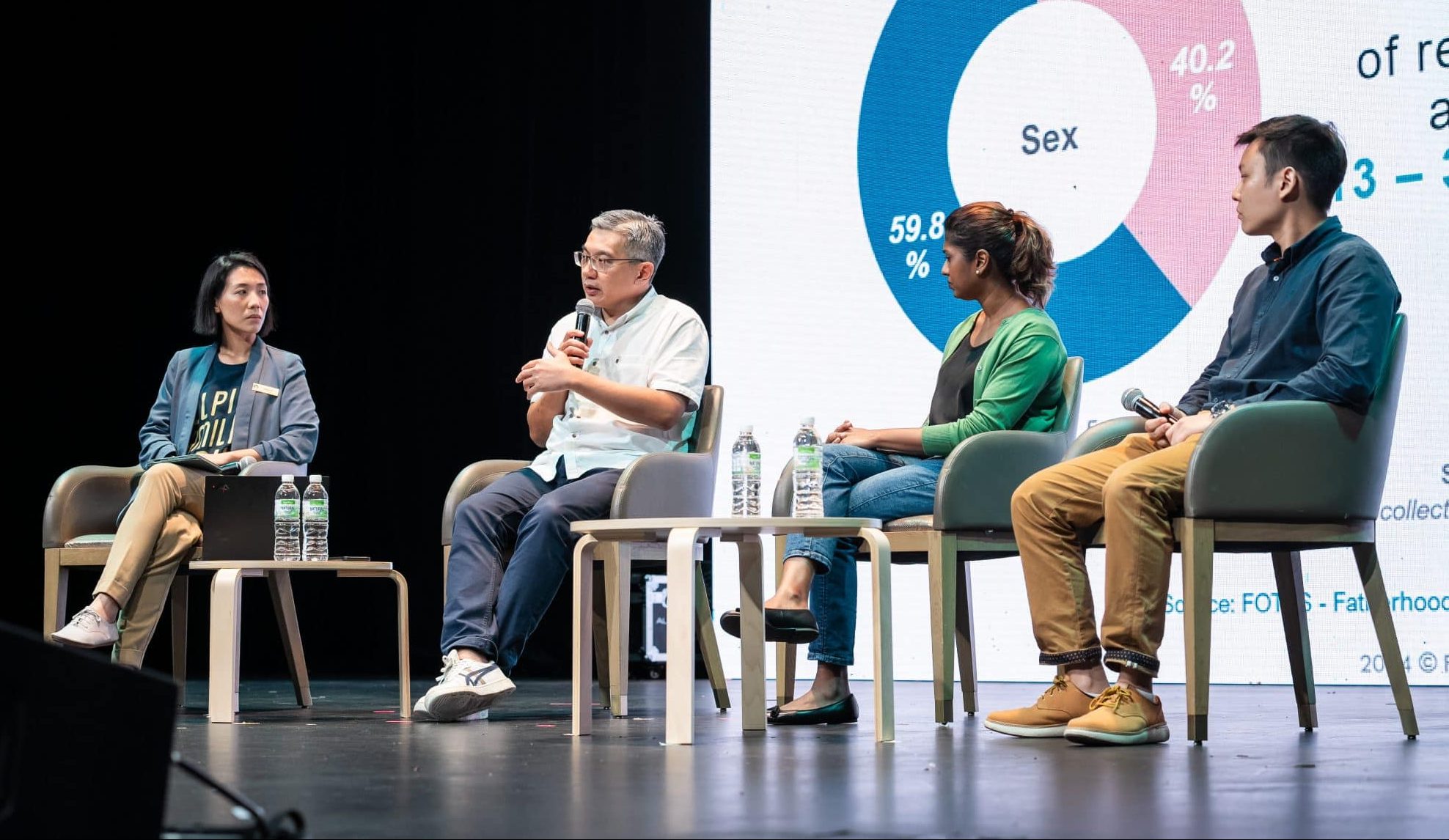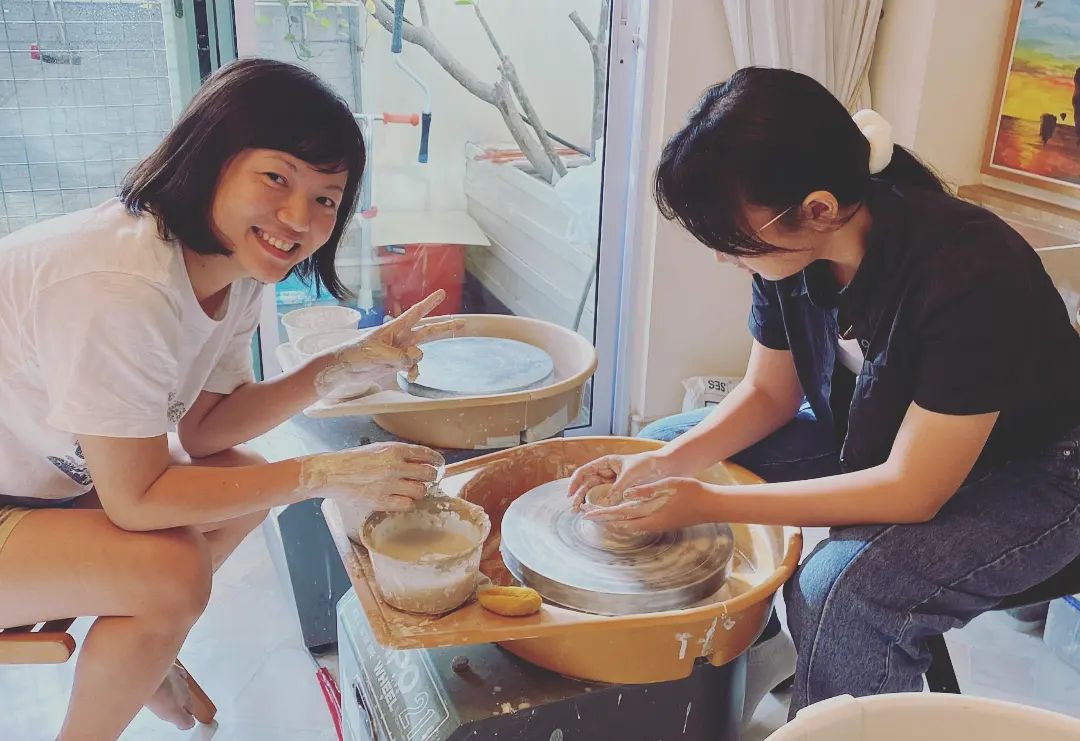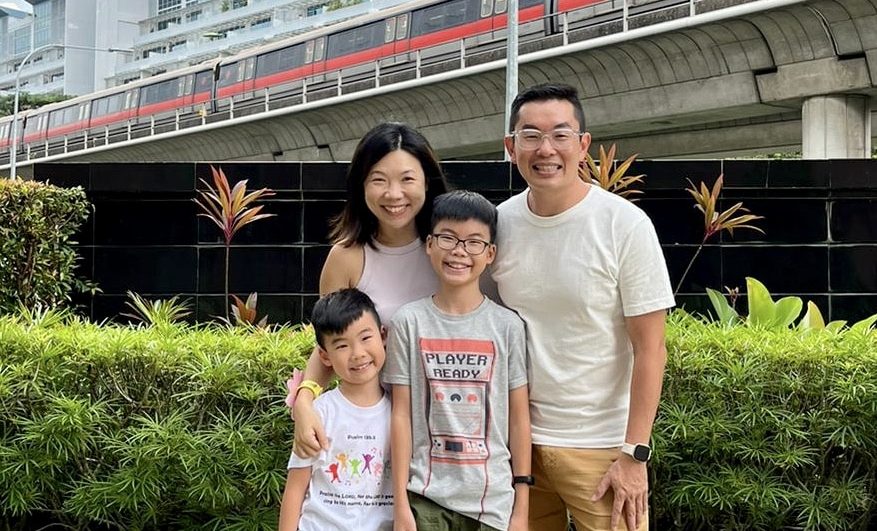Discipline is not the same as child abuse: Family therapist Benny Bong
Christine Leow // June 17, 2020, 2:47 pm
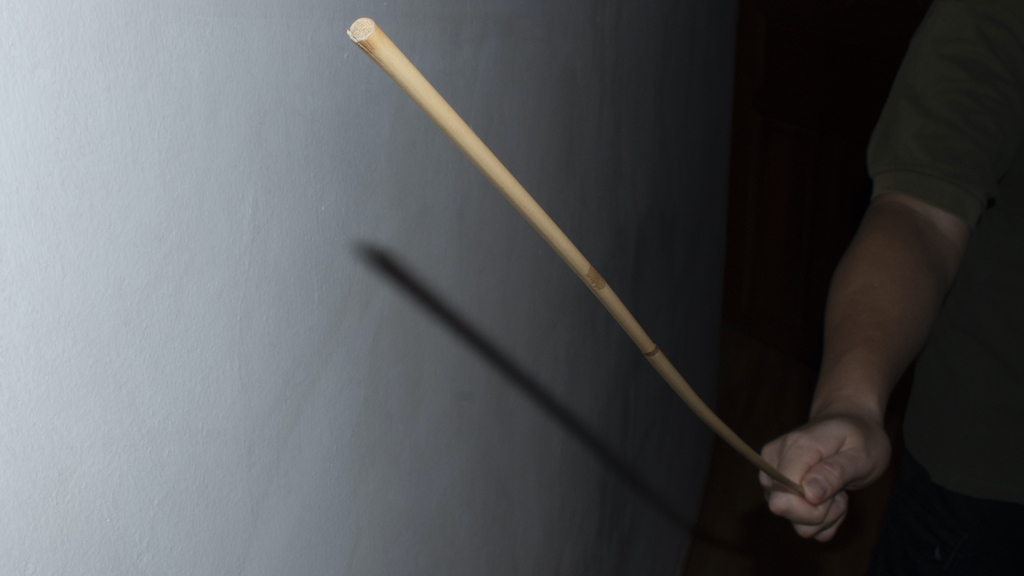
"The foundation of good discipline is love. If you discipline without love, then we are abusers." Photo by Joel Leow.
I wasn’t being violent. I was just discipling my child. I grew up with parents who beat me, belted me, used a pipe or chased me around the house with a chopper. Look at me. I grew up alright. If it didn’t damage me, why should it damage my child?
“Before you use physical discipline, ask yourself: ‘How are you feeling?'”
This is a rationale familiar to Benny Bong who has spent more than 35 years counselling individuals, couples and families. He is a founding member of Society Against Family Violence Singapore and the director of private counselling and training agency The Family Therapist.
Instead of simply hitting, parents need to think about what they want to achieve with physical punishment, he cautioned.
“What do you wish your child to learn? Does the means confuse or obliterate the lesson?
“Before you use physical discipline, ask yourself: ‘How are you feeling?'” said Bong.
“What do you want your child to learn when you use physical punishment?”
If you are using physical discipline out of anger, the child gets the message: Daddy is punishing me out of anger.
But if the child gets the message: Daddy is sad because I disappointed him, “the sadness is a much stronger rod than the biggest rotan you can find,” said Bong.
This was one of the points Bong raised in the second of two webinars on family violence. Family Violence Part 2: Abusive Father-Child Relationships, held on Sunday, June 14, was organised by online streaming platform SMIX, an extension of Salt Media & Entertainment.
The webinar attracted nearly 350 participants including some from Asia, US, UK and Germany.
The first webinar focused on spousal abuse.
Bong pointed to research in the mid-1990s that showed the lasting, detrimental impact of adverse childhood experiences (ACEs).
(ACEs are potential traumatic events that occur before the age of 18, and have life-long implications on health, well-being and other factors).
Abuse is an example of ACE. Others include neglect, being transferred from one home to another and incarceration of a parent. Exposure to parental conflict, parental violence and the abuse of drugs are more examples.
Children exposed to just four forms of ACE were four-and-a-half times more likely to feel depressed and 12 times more likely to want to hurt themselves.
“The knock-on effects of these are tremendous. It goes on for years. That is why we want to look at parenting,” said Bong.
Nearly 60 questions were raised by the participants at the webinar. It was facilitated by Jason Wong, founder of Dads for Life movement and chairman of Focus on the Family Singapore.
Here are Bong’s replies to some of the questions:
What is child abuse?
There are three areas of responsibilities we can hold parents accountable. The law protects children against physical abuse, sexual abuse and neglect.
Neglect is when parents do not take care of their children. They party all night while their children are locked up at home, or they deny them medical attention, or a chance to go to school.
What is the difference between acceptable discipline and abuse?
When it comes to physical abuse, it becomes a grey area.
Parents say: “I’m not abusive. It is because I love my child that is why I discipline him.”
“Do not discipline at the spur of the moment.”
The deciding factor is: What do you want your child to learn when you use physical punishment? Do not discipline at the spur of the moment. What kind of relationship do you want to come out from there?
On the flip side, there are parents who are overcome with guilt: “I broke my child’s computer. I was so angry because he refused to stop playing on it. Did I make my child an emotional cripple? Did I scar my child for life?”
According to the concept of the Good Enough parent, our children do not judge us from just one independent action. Children are more resilient than that.
If you have, on the balance, been supportive and nurturing, the child will know: “Daddy and Mummy are usually like this. But that day, he was so angry because I blew it.”
“If you love your child without discipline, some may turn out well. But some may be confused.”
If you are always blowing your top, even if you hit the child once, your child will always remember you as a very angry father or mother.
The foundation of good discipline is love. If you discipline without love, then we are abusers.
If you have a loving relationship, build on it with discipline. The child will be more willing to receive it.
Do not discipline at the spur of the moment. If you feel angry, go to your room and say: “I’m not ready to deal with you yet.”
Then, calm yourself and practice the three Ps of parenting:
Pray – “God, what should I do?”.
Protect – you are tasked to protect. If he does the same thing outside, people may not be so kind. So, you want to protect him from harm.
And Provide for your child.
If you love your child without discipline, some may turn out well. But some may be confused. When they leave home and are no longer protected by the family, they will learn the terrible reality that not everything goes their way.
What does an abusive relationship look like?
We are familiar with the stereotype of the fearsome parent with the booming voice, where their children cower in their presence.
What we cannot recognise is the parent who says: “I don’t mean to be abusive.”
In their hearts they love. But they have problems regulating and controlling their impulses when they are angry. So they act out in a certain way.
Sometime, they are repeating behaviour they have seen.
So, do not just look at intention. They say: “I love my son.” Good. But does your son experience it?
What is the profile of an enabling parent?
Sometimes, people approach parenting in this way: Father is the disciplinarian, mother is the one who sayang saying. This is enabling.
Do not parent this way. It typecasts us into fixed roles.
You may have a father who wants to gather his children in his arms and love them. But he cannot because when he comes home, his wife says: “Look at your children, you better do something about it.”
“A parent can be enabling the abuse by keeping silent or providing excuses.”
Your child needs to see in you – whether father or mother – as good role models, not one who is super nice and the other an unrelenting dictator.
Some mothers may feel that because the husband is so unrelenting, someone must listen to the child.
But if you do not find an alternative to this typecast role, your children will grow up to have a distant relationship with their father. And they will have that kind of relationship with their children.
There is another definition of enabling. A person may seem to be doing something right, even helpful. But it maintains the bad behaviour.
A parent can be enabling the abuse by keeping silent or providing excuses: “You must pity daddy. Daddy is having a hard time and you got daddy even angrier.”
The child learns that if you make someone angry, you deserve to be treated this way.
No one deserves to be abused.
How can we protect children from family violence?
We have been doing more public education about child abuse. There are systems and processes that provide care for children.
The state is quite good at making sure that people who are in touch with children – childcare teachers, school teachers, counsellors in schools – are alert to injuries and behavioural changes and know when to start enquiring.
Medical professionals will also report suspicious injuries.
The child protection team at the Ministry of Social and Family Development are trained to look out for signs of abuse.
Then, as a neighbour, a church member, if you know a child who is going through harsh parenting behaviour, we encourage you to approach them to offer assistance and support.
If the family is someone you do not know and you do not have the opportunity to talk to the child, contact the Child Protective Service at The Ministry of Social and Family Development (MSF). Should your suspicions be unfounded, you will not be held liable.
How do we resolve the dilemma of removing young people from their abusive parents?
The Straits Times in April reported that over 1,000 cases of child abuse were investigated last year. Close to 4,000 inquiries were received by the Child Protective Service.
“We as a faith community have to think about how we can provide this same concept of safety to children and women.”
We do no assume the worst with every complaint. We take a much more considered, well-rounded response because we still want to support families.
Research overseas shows that children in children’s homes receive more abuse. That is why we are more careful about the level of care in our children’s homes. We review the care standards there.
In the Old Testament, when someone commits murder and it is accidental, they can run to sanctuary cities. As long as you are there, you will receive protection.
Sometimes, we as a faith community have to think about how we can provide this same concept of safety to children and women.
We have shelters where they can go to if they are living in abusive relationships. But most of the time it is difficult to get into these places because they are functioning at maximum capacity.
I hope we can open up homes and churches to be sanctuary cities instead.
How can we prevent child abuse?
If parents can be more effective as a couple, they can be better as parents.
We also need to learn how to be parents just as we learn how to be engineers and accountants. Some say: “Monkey see, monkey do.” It works only if we are monkeys.
The church can help by running parenting classes and talks. Schools do that but they have a harder time promoting it to the people who really need it.
Churches have a much easier time speaking out about it.
What can the faith community do about child abuse in their midst?
Some quote scripture and say it was the Bible that first said: “Spare the rod and spoil the child.”
“If we do not speak out, on the day of reckoning, we will be held accountable.”
Yes, but the Bible says a lot more about being good, loving parents. The focus is not about punishment, but about child-raising.
If there is abuse within the church, speak out. Children, speak to your Sunday School teachers, youth leader, pastor.
The church should not be silent even if the abuser is a prominent leader. We do not have to protect them and we do not have to protect God’s reputation. God does not need us to protect His reputation. He can stand up for what He is.
If we do not speak out, on the day of reckoning, we will be held accountable: Why did you leave the defenceless without support, those in need of protection without care?
How can victims learn to forgive their abusers?
Forgiveness has a part to play in the healing process. But forgiveness is a two-way street. It is not a meaningful gesture if the offending party does not acknowledge that they want forgiveness.
If you cannot get that acknowledgement, there are other healing processes you can go through.
Some heal with therapy. Some develop faith that changes their whole understanding of things. Some enter into meaningful relationships that provide them with the love they need.
If you know victims, please encourage them to get in touch with professionals. There is healing available that can be remarkable. You should find the release that the healing provides you. You deserve it.
____________________________________________________________
Questions and answers from the two webinars will be made available on both Salt Media & Entertainment’s and SMIX’s social media accounts.
Between now and June 28, a portion of the proceeds from the streaming of docu-film Call Me Dad will be donated to three organisations who work against family violence.
For all Salt&Light readers, SMIX is offering an exclusive 40% discount off on their special selection of Father’s Day movies. Enter INDIVISIBLE40 to enjoy the discount for Indivisible and STORMBOY40 to enjoy the discount for Storm Boy.
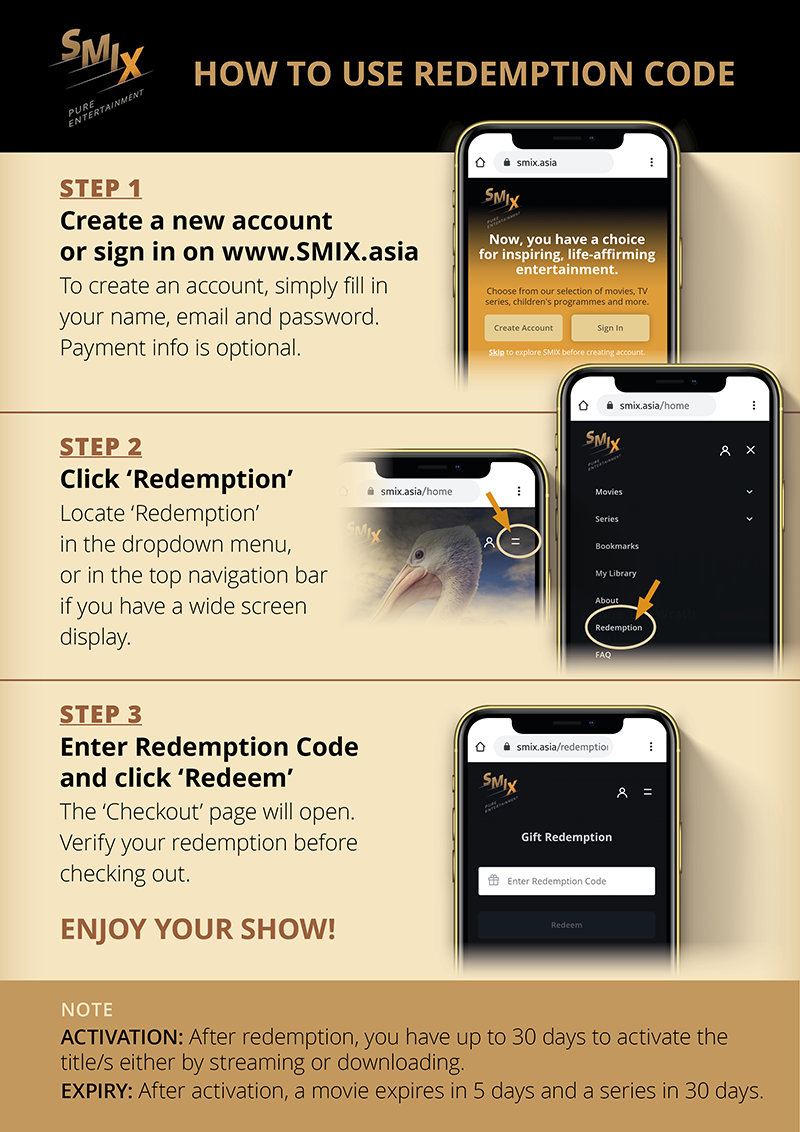
Photo courtesy of SMIX.
Aggressors need help too: Family counsellor Benny Bong answers questions about family violence
“I was scared when my father beat my mother”: World Vision’s poignant peek into domestic violence
Rising tension in the home during Circuit Breaker? Here’s how to diffuse friction
WHERE TO GET HELP
Police
- Call 999 if there is a risk of injury, immediate threat to life or bodily harm
- Make a police report.
- The police can also recommend centres where help can be obtained.
For victims
- AWARE Helpline: 1800 777 5555 (Monday to Friday, 10am to 6pm)
- Big Love Child Protection Specialist Centre: 6445 0400 (Monday to Friday, 9am – 6pm)
- Care Corner Counselling Centre (Mandarin): 1800 353 5800 (Daily except public holidays, 10am – 10pm)
- Centre for Fathering
- ComCare: 1800 222 0000 (to reach a Family Service Centre near you)
- HEART @ Fei Yue Child Protection Specialist Centre: 6819 9170 (Monday – Friday, 9.30am – 5.30pm)
- Focus on the Family Singapore: 6336 1444 (Monday to Friday, 9am – 6pm)
- Institute of Mental Health’s Mobile Crisis Service: 6389 2222
- PAVE Integrated Services for Individual and Family Protection: 6555 0390
- Samaritans of Singapore: 1800-221-4444 (24 hours)
- Singapore Association for Mental Health: 1800-283-7019
- Society Against Family Violence Singapore
- National CARE hotline: 1800 202 6868 (24 hours)
- Tinkle Friend (for Primary School Children): 1800-274-4788 (Monday – Thursday 2.30pm – 7pm, Friday 2.30pm – 5pm)
For abusers
-
- Care Corner Project Start: 6476-1482 (various times)
- ComCare hotline: 1800 222 0000 (to reach a Family Service Centre near you)
- Centre for Fathering
- Focus on the Family Singapore: 6336 1444 (Monday to Friday, 9am – 6pm)
- Society Against Family Violence Singapore
- PAVE Integrated Services for Individual and Family Protection: 6555 0390
- Trans Safe Centre: 6449 9088
Courts - A personal protection order (PPO) can be obtained to protect the family.
- This will prevent the person from using or threatening to use violence against the family.
Ministry of Social and Family Development - Child Protective Service: 1800 777 0000 (Monday – Sunday, 7am – 12mn)
We are an independent, non-profit organisation that relies on the generosity of our readers, such as yourself, to continue serving the kingdom. Every dollar donated goes directly back into our editorial coverage.
Would you consider partnering with us in our kingdom work by supporting us financially, either as a one-off donation, or a recurring pledge?
Support Salt&Light
